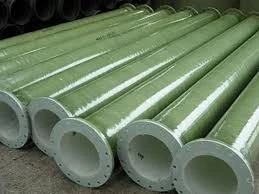
-
 Afrikaans
Afrikaans -
 Albanian
Albanian -
 Amharic
Amharic -
 Arabic
Arabic -
 Armenian
Armenian -
 Azerbaijani
Azerbaijani -
 Basque
Basque -
 Belarusian
Belarusian -
 Bengali
Bengali -
 Bosnian
Bosnian -
 Bulgarian
Bulgarian -
 Catalan
Catalan -
 Cebuano
Cebuano -
 China
China -
 China (Taiwan)
China (Taiwan) -
 Corsican
Corsican -
 Croatian
Croatian -
 Czech
Czech -
 Danish
Danish -
 Dutch
Dutch -
 English
English -
 Esperanto
Esperanto -
 Estonian
Estonian -
 Finnish
Finnish -
 French
French -
 Frisian
Frisian -
 Galician
Galician -
 Georgian
Georgian -
 German
German -
 Greek
Greek -
 Gujarati
Gujarati -
 Haitian Creole
Haitian Creole -
 hausa
hausa -
 hawaiian
hawaiian -
 Hebrew
Hebrew -
 Hindi
Hindi -
 Miao
Miao -
 Hungarian
Hungarian -
 Icelandic
Icelandic -
 igbo
igbo -
 Indonesian
Indonesian -
 irish
irish -
 Italian
Italian -
 Japanese
Japanese -
 Javanese
Javanese -
 Kannada
Kannada -
 kazakh
kazakh -
 Khmer
Khmer -
 Rwandese
Rwandese -
 Korean
Korean -
 Kurdish
Kurdish -
 Kyrgyz
Kyrgyz -
 Lao
Lao -
 Latin
Latin -
 Latvian
Latvian -
 Lithuanian
Lithuanian -
 Luxembourgish
Luxembourgish -
 Macedonian
Macedonian -
 Malgashi
Malgashi -
 Malay
Malay -
 Malayalam
Malayalam -
 Maltese
Maltese -
 Maori
Maori -
 Marathi
Marathi -
 Mongolian
Mongolian -
 Myanmar
Myanmar -
 Nepali
Nepali -
 Norwegian
Norwegian -
 Norwegian
Norwegian -
 Occitan
Occitan -
 Pashto
Pashto -
 Persian
Persian -
 Polish
Polish -
 Portuguese
Portuguese -
 Punjabi
Punjabi -
 Romanian
Romanian -
 Russian
Russian -
 Samoan
Samoan -
 Scottish Gaelic
Scottish Gaelic -
 Serbian
Serbian -
 Sesotho
Sesotho -
 Shona
Shona -
 Sindhi
Sindhi -
 Sinhala
Sinhala -
 Slovak
Slovak -
 Slovenian
Slovenian -
 Somali
Somali -
 Spanish
Spanish -
 Sundanese
Sundanese -
 Swahili
Swahili -
 Swedish
Swedish -
 Tagalog
Tagalog -
 Tajik
Tajik -
 Tamil
Tamil -
 Tatar
Tatar -
 Telugu
Telugu -
 Thai
Thai -
 Turkish
Turkish -
 Turkmen
Turkmen -
 Ukrainian
Ukrainian -
 Urdu
Urdu -
 Uighur
Uighur -
 Uzbek
Uzbek -
 Vietnamese
Vietnamese -
 Welsh
Welsh -
 Bantu
Bantu -
 Yiddish
Yiddish -
 Yoruba
Yoruba -
 Zulu
Zulu
Versatile and Durable Fiberglass Covers for Various Applications and Outdoor Protection Solutions
Exploring the Versatility of Fiberglass Covers
Fiberglass covers have become increasingly popular in various industries due to their remarkable properties and versatility. Made from a composite material consisting of a polymer matrix reinforced with glass fibers, fiberglass combines durability, lightweight characteristics, and resistance to environmental elements. This unique amalgamation of materials makes fiberglass an ideal choice for many applications, ranging from industrial equipment to consumer products.
One of the primary advantages of fiberglass covers is their exceptional strength-to-weight ratio. Unlike traditional materials such as metal or wood, fiberglass provides substantial strength without the added weight. This feature is particularly beneficial in industries where reduced weight can lead to increased efficiency and lower transportation costs. For example, in the automotive and aerospace sectors, using fiberglass components can significantly enhance fuel efficiency due to lighter vehicle weight.
Moreover, fiberglass is inherently resistant to corrosion, chemicals, and UV radiation, which makes it suitable for outdoor applications that are exposed to harsh weather conditions. In many cases, fiberglass covers extend the lifespan of products by preventing degradation from environmental factors. This resistance also translates into lower maintenance costs over time, as fiberglass requires less upkeep compared to other materials that may suffer from rust or rot.
In addition to their durability, fiberglass covers are also highly customizable. Manufacturers can easily mold fiberglass into various shapes and sizes, allowing for unique designs and functionalities tailored to specific needs. This adaptability is evident in a range of products, including electrical enclosures, storage tanks, and even furniture. The ability to create custom solutions makes fiberglass an attractive option for businesses seeking to differentiate their products in a competitive market.
fiberglass cover

The applications of fiberglass covers are vast. In the construction industry, fiberglass is often used for roofing materials and insulation, providing energy efficiency and weather resistance. In the medical field, fiberglass is commonly found in items such as orthopedic casts, which are lightweight and water-resistant, providing comfort for patients during recovery. Additionally, the marine industry utilizes fiberglass extensively for boat hulls and other components, taking advantage of the material's ability to withstand the challenges posed by water exposure.
Another noteworthy benefit of fiberglass covers is their excellent insulating properties. Fiberglass can help regulate temperature and minimize energy loss, making it an ideal choice for both residential and commercial insulation applications. This feature aligns well with the growing emphasis on sustainability and energy efficiency in building practices, allowing properties to reduce their carbon footprint and energy costs.
Despite these benefits, it is also essential to consider the environmental impact of fiberglass production and disposal. While fiberglass itself is durable, it is not biodegradable, leading to concerns regarding landfill waste. However, advancements in recycling technologies are being explored to address these issues. Companies are now looking into ways to recycle fiberglass products and incorporate more sustainable practices into their production processes.
In conclusion, fiberglass covers present a remarkable solution across various industries, thanks to their strength, lightweight nature, corrosion resistance, and customization potential. As technology continues to evolve, the applications for fiberglass are expanding, revealing new frontiers for innovation. While challenges regarding environmental sustainability remain, the ongoing development in recycling efforts holds promise for a more sustainable future. Overall, fiberglass covers stand out as a testament to modern engineering, offering both functional benefits and creative possibilities.
Latest news
-
High-Quality Fiberglass Car Bodies Durable GRP Car & Boat Body SolutionsNewsJul.08,2025
-
High-Quality Fiberglass Dual Lamination Product Manufacturer Durable FRP & GRP Dual Lamination SolutionsNewsJul.08,2025
-
Rectangular Tank with Dimensions for GRP Calculation Custom Fiberglass GRP Rectangular TanksNewsJul.07,2025
-
High-Quality Fiberglass Weir Custom FRP Weir & Fiberglass Tanks ManufacturerNewsJul.07,2025
-
CPVC FRP Pipe A Reliable Choice for Industrial Applications High Strength & Corrosion ResistanceNewsJul.07,2025
-
Fiberglass Scrubber for Effective Cleaning and Stain Removal – Superior Performance in Various ApplicationsNewsJul.06,2025









